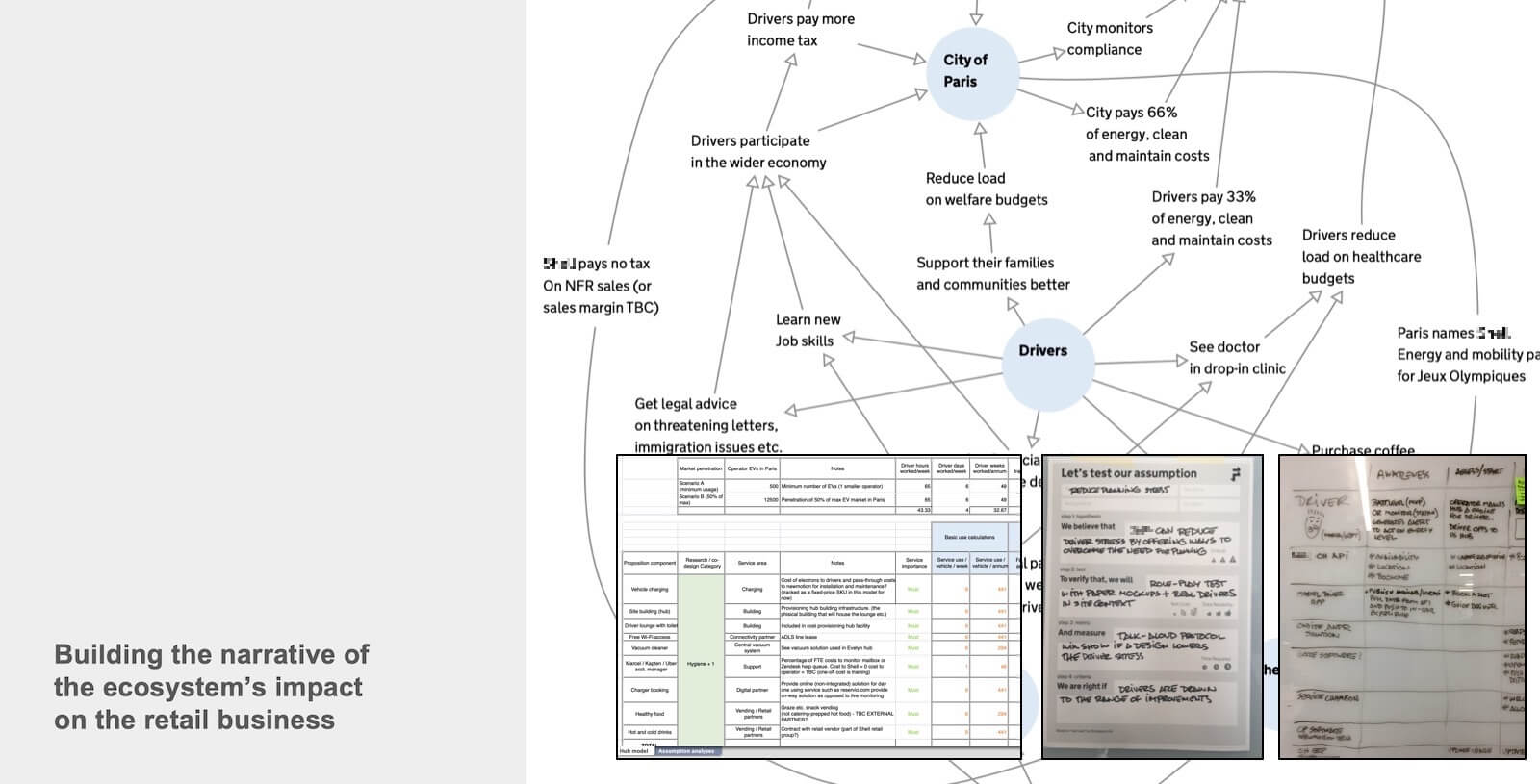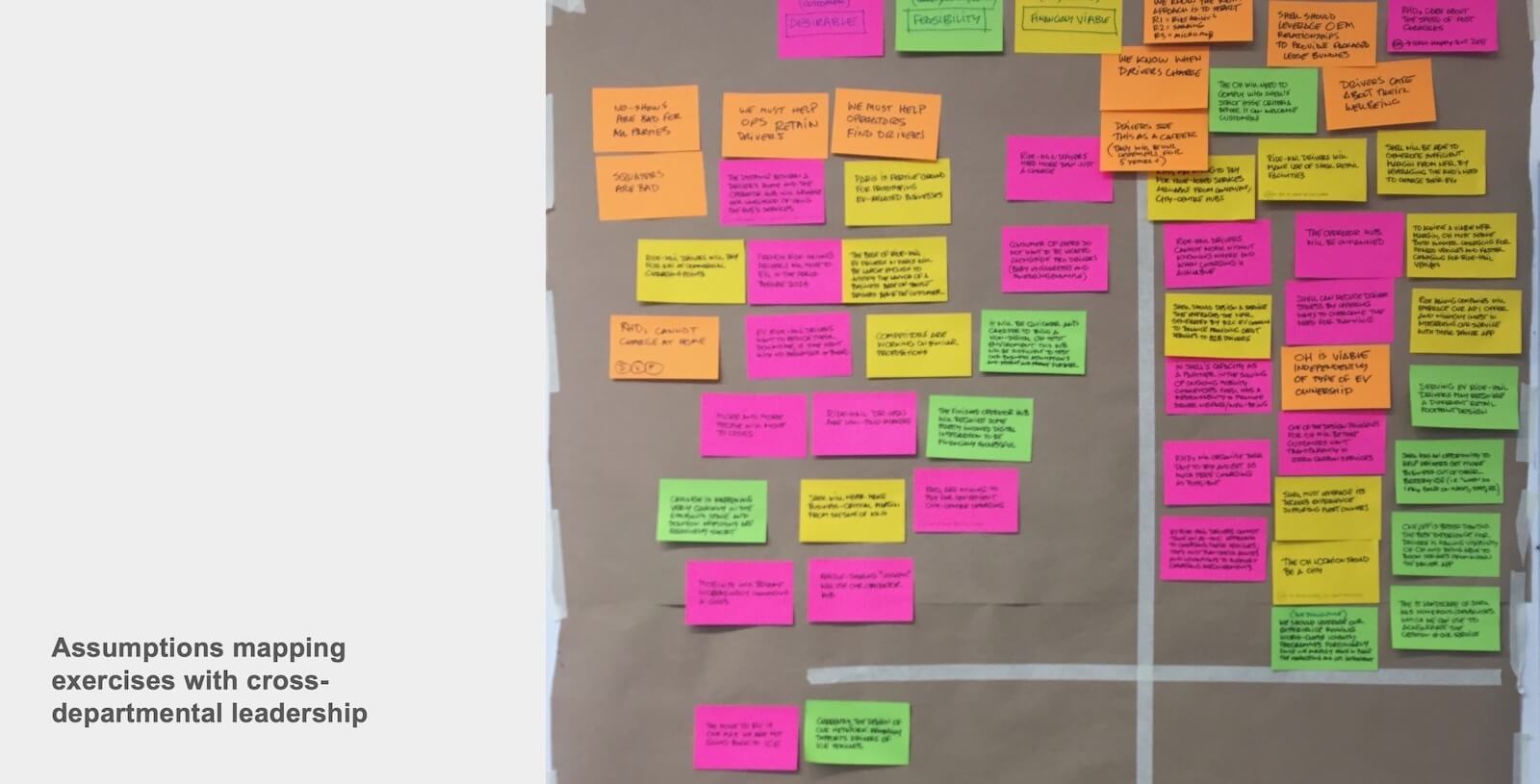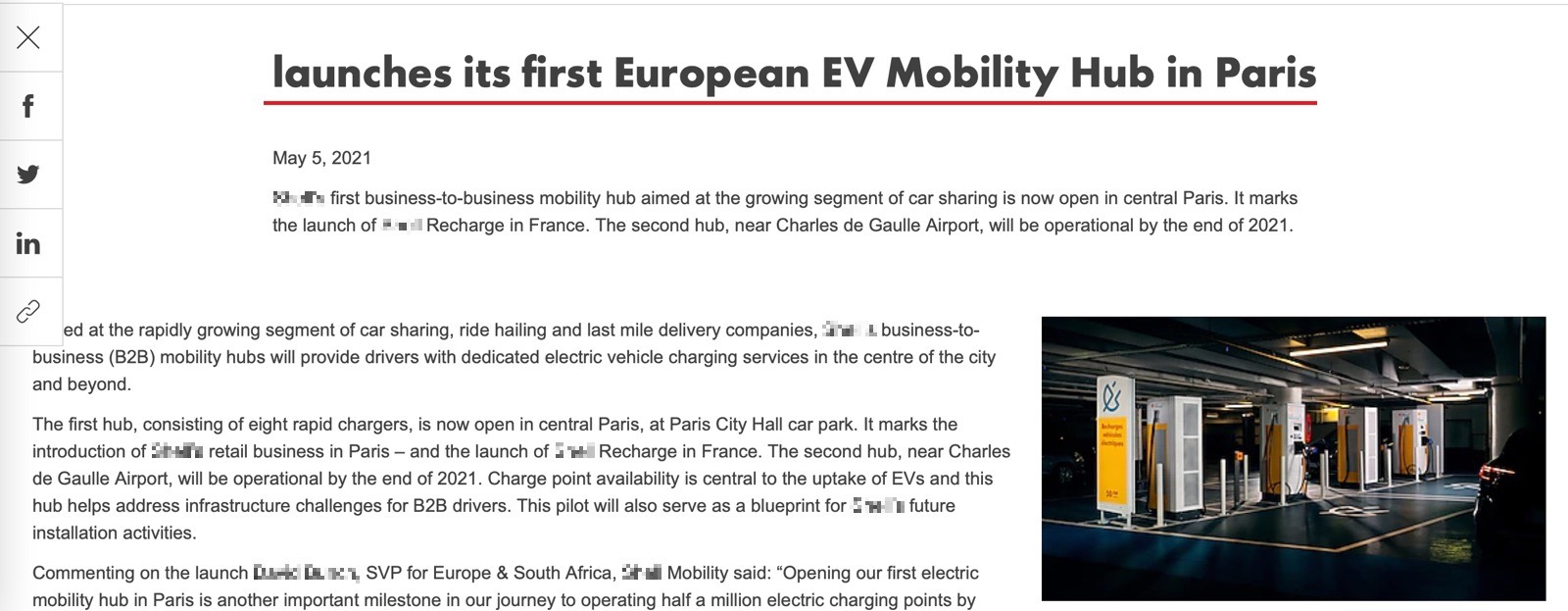Synopsis
In Paris, a leading oil and gas company faced the challenge of aligning its retail business with a strategic shift towards renewable energy, particularly serving B2B e-mobility customers. Additional pressure and complexity was thrown in by the energy provider being in negotiations for a role as part of the 2024 Paris Olympics.

I tracked the stories of gig-economy workers in Paris, from scooter jockeys to minicab operators. Shadowing and interviewing them in their own spaces challenged many of the client's starting assumptions.
This case study encapsulates the journey of discovering, strategising, and implementing a sustainable and profitable business model amidst the evolving landscape of energy consumption and distribution.
Key Milestones
- Insights & Opportunities: Conducted in-depth primary research among e-mobility workers in Paris (in French), debunking prevailing assumptions about user needs, behaviours, and contexts. This led to a strategic pivot, aligning more closely with actual stakeholder needs.
- Strategic Clarity: Facilitated assumption mapping and validation sessions with business stakeholders, clarifying organizational roles and pinpointing the misalignments preventing a cohesive infrastructure and retail service offering.
- Benefits Realization: Provided compelling evidence for a strategic pivot, leading to a successful pilot and setting the business on a trajectory to meet its e-mobility goals in time for a significant upcoming event, the Olympics.

As is often the case with larger customers, I needed to deal with the overlapping and sometimes conflicting needs of stakeholders in different silos. Early on the project, I landed a plan to overcome these challenges and work as one team.
Business challenge and user need
Faced with the complex task of maintaining the retail business’ viability while transitioning from fossil fuels, my client struggled with unclear governance and overlapping stakeholder needs. The goal was to understand and effectively serve e-mobility fleets while discovering viable, ethical, and sustainable monetization strategies.
Methodology
Dived deep into the ecosystem, studying the interplay between energy transformation, retail, and network forces. Through a series of site visits, contextual inquiries, and stakeholder workshops in Paris, I uncovered a complex stakeholder ecosystem and identified clear avenues for improvement.

Understanding the ecosystem people first: What are the people doing? What insights can we discover (what's going on)? What forces are at play? What existing community assets are available to build a future with? What are the opportunities (what could be improved)?
Design decisions
Pivoted from an initial retail-led proposition based on charging gig-economy workers to a more sustainable and inclusive model. The process involved rigorous site visits, user research, and assumptions mapping, leading to significant insights and alterations in our approach.

The mapping exercise uncovered a number of important untested assumptions: Hub revenue to be driven by retail; 3rd sector not necessary beyond PR; Drivers needs are known
Outcome
The final recommendation led to a pilot launch in central Paris and Roissy airport, demonstrating a successful alignment of the company’s retail business with its renewable transformation goals.

After synthesising findings, and sense-making with my colleagues, I decided to recommend that the org pivot away from a retail-lead proposition which depended on charging gig-economy workers. They did with a pilot launch in Paris city centre and Roissy airport hub launched later that year.
Feedback?
My client thought this work was helpful and gave me some very lovely feedback:
Dug worked on an innovation initiative in my team bringing critical thinking, much needed CX expertise and a flexible approach to bring clarity and alignment to how a proposition needed to evolve. Would not hesitate to hire him again.
Can I help you solve a similar problem? dug@goodlookslikethis.com